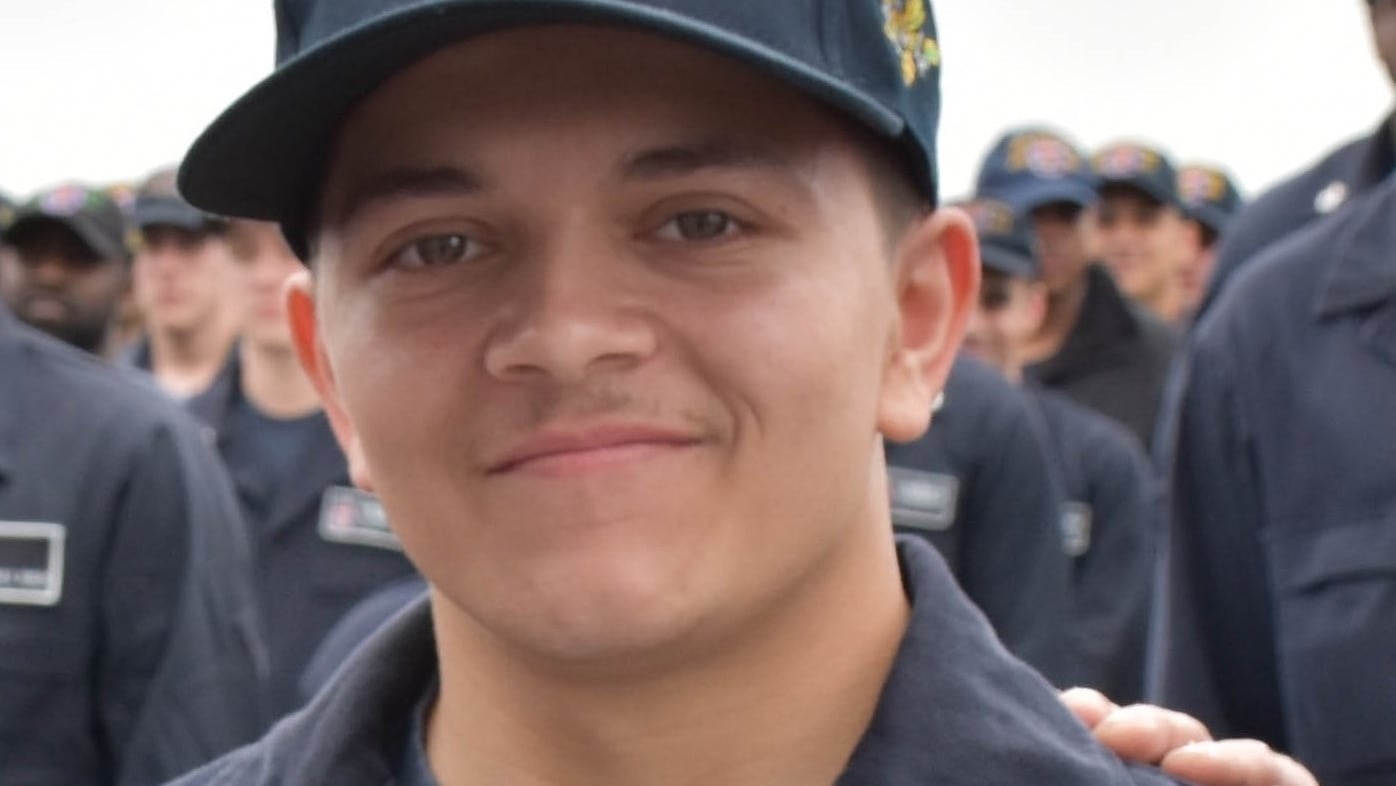It is the nightmare any ship’s crew hopes they never encounter: Man overboard.
Such a call went out June 8 when Gas Turbine Systems Technician (Mechanical) 3rd Class Peter Mims was reported missing as the cruiser Shiloh conducted routine operations off the coast of Okinawa.
The search to find Mims became a 50-hour manhunt involving several destroyers, aircraft and the carrier Ronald Reagan.
But a week later, after he was presumed dead, Navy officials say Mims was found hiding in an engineering space aboard the Shiloh, and turned himself in to shipmates.
The 23-year-old Floridian’s final fate in the sea service remains unclear at this point. Officials say the investigation into his disappearance will likely stretch through the summer.
Mims was transferred to the brig at Marine Corps Air Station Miramar in San Diego on June 21 and could not be reached for comment.
But whichever way things shake out, the Navy will have several options on the table should it proceed with any charges under the Uniform Code of Military Justice, according to several former military attorneys now in private practice.
"When you're building a case…you have to tell a story, and that story has to be reasonable," said Joseph Jordan, a former military lawyer and current civilian attorney. "What is this sailor's story?"
The recently frocked 3rd class could face anything from desertion to absence without leave charges. Officials could administratively separate him, but with so much time and resources drained by the search, the Navy will likely want him to stand trial.
"I would imagine if they exerted that much manpower and resources to find him, and it was all because he was hiding, that's going to be an issue," said Katie Cherkasky, a former Air Force attorney.
If any of Mims' shipmates were found to have been in on the plan, they could all face a conspiracy charge, she said.
If Mims lied to anyone during the ordeal, prosecutors could add a charge for making a false statement as well.
"It's very easy to fit that into a lot of cases," Cherkasky said. "There's different ways to creatively charge cases."
Grover Baxley, a former Air Force attorney, said it was possible Mims could be tried under a violation of the seldom-used Article 99, which covers any service member who "shamefully abandons, surrenders, or delivers up any command, unit, place, or military property which it is his duty to defend."
It also encompasses "disobedience, neglect, or intentional misconduct" that endangers military property, in addition to covering "false alarms in any command."
That charge was levied against Army Sgt. Beau Bergdahl after he walked off his outpost in Afghanistan in 2009 before being captured by the Taliban and held for five years.
Baxley said he could see a convening authority pushing Article 99 and alleging Mims had a duty to protect the ship, and that he failed that duty, thus endangering it.
The massive manhunt for Mims, and whether he knew that manhunt was going on, could factor into any future case against the sailor, Baxley said.
"If they want to get creative and find some way to charge him with the expenditure of resources for the manhunt, that would ramp things up," he said.
If authorities went forward with an AWOL charge under Article 86, Mims would not be eligible to receive a bad-conduct or dishonorable discharge as part of his sentence, Cherkasky said.
Since he was missing more than three days but less than 30, the maximum sentence would be six months' confinement, she said, although his command could discharge him administratively after the trial.
The attorneys interviewed by Navy Times differed about the feasibility of charging Mims under Article 85 of the Uniform Military Code of Justice, which is desertion.
Jordan said the strongest case may reside in desertion charges.
Officials could charge Mims with permanent desertion, where he never intended to come back, or for desertion to avoid hazardous duty or shirk service.
Again, the facts and circumstances regarding how and why Mims disappeared would be paramount, Jordan said.
Jordan surmised that prosecutors could argue Mims intended to stay deserted if he heard the man overboard announcements on the Shiloh's PA system as his shipmates searched for him.
"If that's announced all over that vessel, that they're looking for said person because they think he jumped overboard…you could make an argument he deserted, because why doesn't he present himself at some point?" Jordan said. "They do that for a number of days and this dude decides I'm going to stay hidden…they've got a case for desertion."
Assessing exactly how Mims went about living and surviving for a week on a cruiser would help build such a case, he said.
"I'm thinking about the day to day," Jordan said. "This guy's gotta sleep somewhere, he's gotta take a dump somewhere, he's gotta urinate somewhere, he's gotta get something to eat."
Mims' mental state will likely be assessed, and will affect how he is charged as well.
"It's unfortunate we got a lot of tax dollars that were spent" in the search for Mims, Jordan said. "But this young man might have a mental health issue."
Issues in Mims' personal life, expanding out to any family issues and the climate on the Shiloh, will also be examined, Jordan said.
"Normal, rational people generally don't just go hide on a ship," he said. "Something's got to be going on."
Geoff is the managing editor of Military Times, but he still loves writing stories. He covered Iraq and Afghanistan extensively and was a reporter at the Chicago Tribune. He welcomes any and all kinds of tips at geoffz@militarytimes.com.




